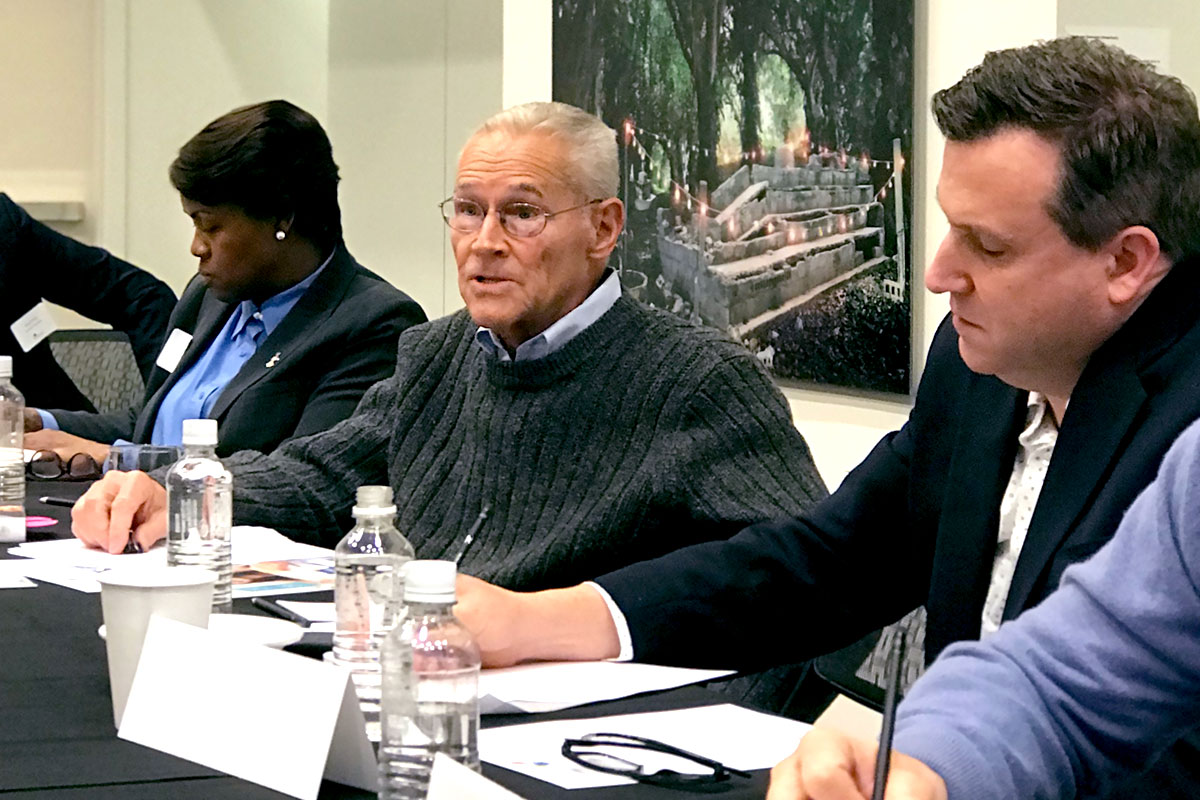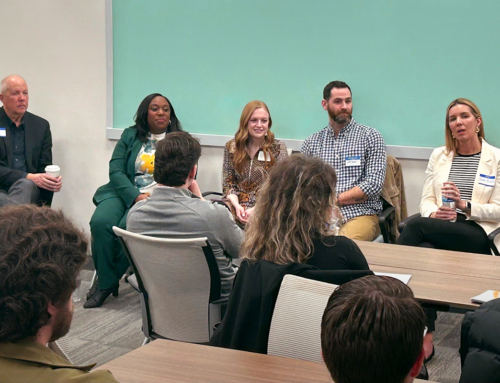I recently had the opportunity, with some other Cincinnati-area marketers and communicators, to listen to, learn from and chat with one of the world’s most iconic brand builders – John Pepper.
John spent 40 years building brands at Procter & Gamble, one of the world’s leading houses of brands, where he served as CEO and Chairman of the Board. He also served on the board and as board chair of the Walt Disney Company, one of the world’s most recognizable and highly regarded brands.
To listen to John reflect, with remarkable detail and insight, on many past successes – and just a few failures – was like attending a marketing and communications master’s class, only better.
I felt compelled to capture just some of John’s brilliance and clarity in this post. Here are just a few highlights and my takeaways:
What consumers want: It’s all about people and value … providing products and experiences to consumers that “offer an unmatchable difference in their lives.”
Today’s marketer must do the same thing as yesterday’s marketer but with nearly unimaginable advances in technology and speed. “You have to engage them – surprise them – like no one else does. It’s still all about the relationship with the consumer.”
My takeaway: Brand loyalty is still and always will be earned. There are no shortcuts to developing brand equity.
Innovation requires commitment: We all say we want innovation, but an organization must nurture, welcome and embrace it. “Innovation needs to be sheltered and protected and this, sometimes, requires draconian, forceful leadership.”
John recalled several examples when breakthrough ideas were on the chopping block, at risk of losing funding. ROI was questioned and ideas that are today lauded as great successes almost never were.
John asserted that it is often impossible to speculate on the ROI of an innovation because there is no way to yet understand or assess how big the idea really can be. He cited several occasions when innovators asked business leaders to “trust them” on the idea they were chasing down.
My takeaway: A commitment to innovation often comes down to the trust leadership has in the people involved.
The importance of reputation: It matters, internally and externally.
For employees, John shared a belief that pride was a powerful human emotion and proud employees were a differentiator between good and great companies. “To say that you work for ‘X’ company and to have it elicit an ‘I’m impressed’ response from family and friends is critical to a company’s success.”
When in early talks to acquire a major brand, the brand’s CEO noted that his only interest in being acquired was by P&G. He cited three reasons: 1. P&G knows how to build brands; 2. P&G cares about its employees; and, 3. P&G cares about the communities in which it operates.
My takeaway: Reputation is about so much more than external perception. I cannot imagine two more powerful examples of the importance of reputation.
The role of the company: The oft-heard but tired definition of the purpose of a public corporation: to deliver meaningful and sustainable return on investment for its shareholders, while important, just comes up short.
Purpose-driven Pepper built on this by acknowledging the obvious: “Of course a company must succeed. But it must do more … it must benefit society.”
John reflected on a meeting he had decades ago with the leader of China and for which he was prepared to discuss global trade policies, global banking practices, etc. He said he was surprised and deeply impressed when the leader simply thanked him for P&G’s commitment to improve the quality of education throughout China.
In a way that only John Pepper could, he added this as his own proof-of-concept for the broader definition of the role of the company: “You don’t do the right thing for the Chinese premier of the day. You do it because it is right.”
If this were a master’s class for brand builders – those people who go to work each day to develop, manage and protect a brand – John Pepper imparted valuable, foundational prerequisites of success.
Thanks, John, for sharing your lifetime of knowledge, experience and insights.








